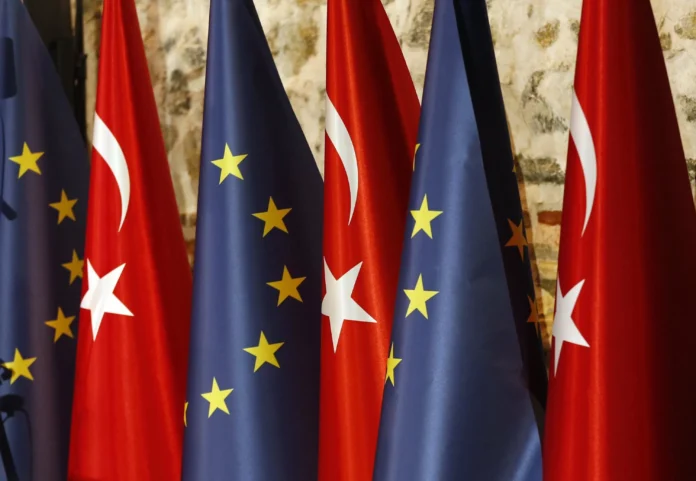Turkey’s pursuit of European Union (EU) membership has been a long-standing goal, with the country’s commitment to political, economic, and social reforms in order to align with EU standards. However, recent statements made by Foreign Minister Hakan Fidan suggest that Turkey is exploring other options in the event that accession to the EU fails. Fidan’s comments come as Turkey looks to diversify its international partnerships, including its interest in joining the BRICS (Brazil, Russia, India, China, and South Africa) alliance.
At a press conference, Fidan stated, “The EU has always been a strategic objective for Turkey, and we will continue to work towards meeting the membership criteria. However, if our efforts are not met with a positive outcome, we will have to consider other alternatives.” This statement has sparked a debate among analysts and policymakers, with some expressing concern over Turkey’s potential shift towards the BRICS.
Turkey’s relationship with the EU dates back to 1963, when it signed an Association Agreement with the then-European Economic Community. Since then, Turkey has made significant progress towards meeting the EU’s membership criteria, including implementing political and economic reforms and improving human rights and rule of law. However, Turkey’s EU accession process has been marred by numerous hurdles, including political tensions and disagreements on key issues such as Cyprus, human rights, and Turkey’s relationship with neighboring countries.
In recent years, Turkey has also faced growing disillusionment with the EU’s reluctance to move forward with its membership process. Many in Turkey view the EU’s attitude towards their country as unfair and unjust, as well as biased against Turkey’s Muslim identity. This has led to a shift in public opinion, with a growing number of Turks questioning the country’s pursuit of EU membership.
In light of these developments, Turkey’s interest in joining the BRICS alliance is gaining momentum. The BRICS is a group of emerging economies that hold significant economic and political influence in the international arena. It is estimated that these five countries account for over 40% of the world’s population and nearly a quarter of the global GDP. Turkey has been actively seeking to strengthen its relationship with these countries, with President Recep Tayyip Erdogan even hosting a BRICS summit in Istanbul in 2015.
The potential benefits of joining the BRICS for Turkey are numerous. It would provide new avenues for trade and investment, as well as access to new markets and technologies. It would also allow Turkey to diversify its partnerships and reduce its dependence on the EU. In addition, the BRICS countries share similar views on key international issues, such as the need for reform in the United Nations, which align with Turkey’s foreign policy objectives.
However, some experts caution that a BRICS membership may not be the solution to Turkey’s current challenges. These countries have their own internal issues, and joining the alliance could potentially create new challenges for Turkey. It could also strain Turkey’s relationship with the EU and its traditional allies, such as the United States.
Nevertheless, Turkey’s pursuit of BRICS membership is a natural development, considering the country’s growing global influence and its desire for greater economic and political partnerships. Fidan’s statement should not be seen as a signal of a complete departure from the EU, but rather a reflection of Turkey’s determination to explore all options and diversify its international relationships.
In conclusion, Turkey will continue its efforts towards EU membership, but it is also exploring alternative partnerships to further its economic and political interests. Joining the BRICS could potentially provide Turkey with new opportunities and strengthen its global position. As Fidan stated, “Turkey is open to all options that will bring prosperity and stability to our country, and we will carefully consider all feasible alternatives.” Ultimately, Turkey’s pursuit of EU membership and its interest in joining the BRICS should not be seen as conflicting goals, but rather as complementary strategies to further Turkey’s progress and development on the global stage.


